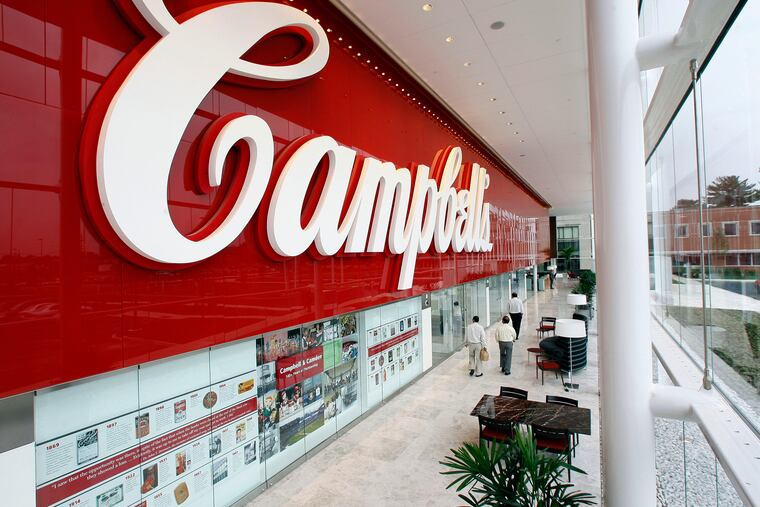Campbell Soup under fire from activist investor
The struggle over the future of Campbell Soup Co. broke into the open Thursday when activist investor Daniel S. Loeb disclosed that he had accumulated a 5.65 percent stake in the Camden company and was working George Strawbridge Jr., a member of the controlling Dorrance family, to force changes or a sale.

Activist investor Daniel S. Loeb opened fire on Campbell Soup Co.'s board Thursday, disclosing that his firm had acquired a 5.65 percent stake in the Camden company for $686 million and that he was allied with George Strawbridge Jr., a member of the controlling Dorrance family, in his bid to force the sale of Campbell.
Loeb's firm, Third Point LLC, acquired 17 million shares after the unexpected departure of president and chief executive Denise Morrison in May, the filing with the Securities and Exchange Commission said.
That makes Third Point the company's fourth largest shareholder behind Mary Alice Malone, Bennett Dorrance, and a family trust. Malone and Dorrance are grandchildren of John T. Dorrance, a chemist who devised the recipe to make condensed soup in 1897, as is their cousin, Strawbridge.
Campbell said when Morrison left that it would review its portfolio and report results to investors Aug. 30.
The company is sticking with that plan. "Our entire board of directors remains dedicated to delivering a go-forward strategy that will drive value for all shareholders," the company said in response to the filings by Loeb and Strawbridge.
Third Point said its "analysis shows that years of abysmal oversight" by Campbell's board "permitted management missteps, dismal operating performance, and a series of ill-advised acquisitions to take an irreversible toll" on the company.
The filing cited the company's low stock price and a heavy debt load taken on to pay for acquisitions, including Snyder's-Lance Inc. this year for $6.1 billion, including assumed debt. Bolthouse Farms, a California-based fresh carrot and premium refrigerated juice producer purchased for $1.55 billion in 2015, has failed to meet expectations and has been a significant management distraction.
"The only justifiable outcome of the strategic review" is the sale of Campbell to a strategic buyer, the filing said.
In a separate filing, Strawbridge, who was on the board until 2009, said he had been rebuffed in March when he tried to convince the board that Campbell was going in the wrong direction. Strawbridge's filing said that, if the current strategic review does not result in a new direction for Campbell, the board should be reconstituted, "free of the need to defend past actions and other legacy issues."
Thirty years ago, when nine Dorrance cousins were deeply split over whether to sell the company, Strawbridge sided with Bennett Dorrance, Malone, and their older brother, John T. "Ippy" Dorrance 3d in wanting to retain ownership.
Strawbridge has a 2.8 percent stake in Campbell, according to his filing.
Campbell's shares closed at $42.28, up 30 cents from Wednesday, in trading on the New York Stock Exchange. On takeover speculation, the shares have rebounded from a low of $33.28 after Morrison left.
An unusual dynamic is at play in the fight over the future of the 149-year-old company. Malone and Dorrance are board members with a combined 33.1 percent stake in Campbell. Any sale would have to be approved by two-thirds of votes cast, according to the company's charter, giving the two veto power over any sale.
At the same time, as Loeb argued in his filing, "directors bear fiduciary responsibility to all shareholders."
"If the solution is selling the company, unless those two agree, it's not going to happen. There isn't that much you can do about it," said Charles Elson, director of the John L. Weinberg Center for Corporate Governance at the University of Delaware.
"The bottom line is that Loeb will have to work with them," Elson said.